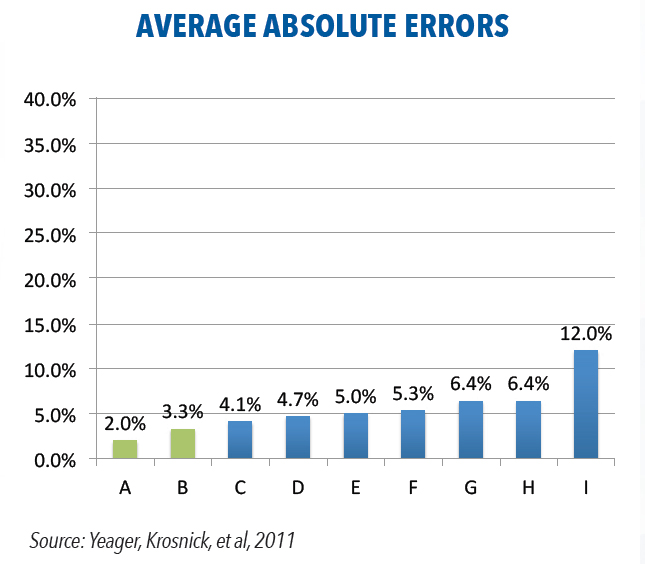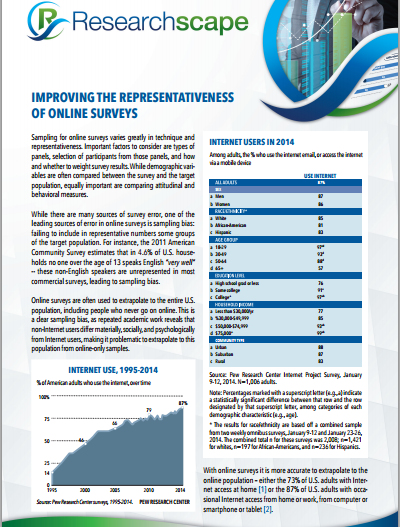A probability online panel selects candidates for participation through a probability sample (typically using Address Based Sampling) and then relentlessly invites candidates to join the panel. Panelists who lack Internet access are then provided computers or tablets along with Internet connectivity, so that they can participate. They are assumed to be representative of non-Internet households for at least some period after empanelment.
Some will argue that there is no transitive property of a probability sample. In other words, a probability sample of a probability sample has a much lower response rate, making it much less reliable. However, Krosnick found in 2004, 2009 and 2012 that an online probability panel did as well as a telephone probability survey in capturing incidence levels. Yeager and Krosnick found that nonprobability panels produced much larger average absolute errors than probability panels.

As you can imagine, given the need to provide equipment and Internet connectivity to those without it, probability surveys are more expensive than online panel surveys – $900 per question for a sample size of 1,000, according to Knowledge Networks for their omnibus product. Perhaps the rise of smartphones will lead to new mobile probability panels that hit a lower price point.
Unfortunately, both probability sampling and probability panels are impractical when targeting markets with low-incidence populations. Probability sampling becomes cost prohibitive, and probability panels have insufficient members meeting the criteria.
 This is an excerpt from the free Researchscape white paper, “Improving the Representativeness of Online Surveys”. Download your own copy now.
This is an excerpt from the free Researchscape white paper, “Improving the Representativeness of Online Surveys”. Download your own copy now.